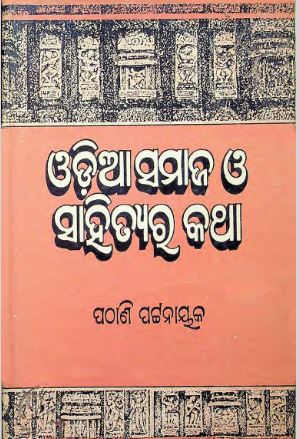In the vibrant tapestry of Indian literature, the Odia language holds a special place, weaving stories and discourses that echo the cultural, social, and philosophical ethos of Odisha. Amongst the various valuable contributions to Odia literature, the essay book “Odia Samaj o Sahityar Katha” by Pathani Patnaik, published in 1993, stands out as a riveting exploration of Odia society and literature. This seminal work delves deep into the intricate relationship between Odia society and its literary expressions, offering readers a comprehensive understanding of how literature mirrors societal nuances.
Pathani Patnaik, a revered literary figure, meticulously crafts this book to reflect the symbiotic relationship between Odia society and its literary traditions. The title “Odia Samaj o Sahityar Katha,” which translates to “Stories of Odia Society and Literature,” aptly encapsulates the essence of the book, promising a journey through the intertwined realms of societal evolution and literary development.
The book is a collection of essays, each a gem in its own right, offering a myriad of perspectives on Odia society and literature. Patnaik systematically addresses various themes, dissecting the evolution of Odia literature within the context of societal changes. The essays are not merely academic analyses; they are windows into the dynamic and vibrant culture of Odisha.
Through his essays, Patnaik engages in an in-depth discussion of historical, social, and cultural transformations in Odisha and their reflections in literary works. One such essay may explore the medieval Odia literary renaissance, where poets like Sarala Das and later, the emergence of modernist writers, contributed to a literary evolution that mirrored societal changes. His exploration of these literary epochs is not just a recounting of historical facts but an insightful commentary on the cultural dialogues they initiated.
Pathani Patnaik’s discussion extends beyond mere literary critique; it emphasizes literature as a mirror reflecting societal values, struggles, and transformations. His essays underline how Odia literature has been a potent force in shaping and being shaped by societal paradigms. For instance, he may examine how the Bhakti movement inspired profound literary creations that echoed the zeitgeist of devotion and social reform.
Patnaik also delves into the role of folklore and oral traditions in Odia literature, emphasizing how these narratives carry the ethos of the common folk, preserving and propagating cultural heritage. His exploration of these grassroots literary forms affirms the democratic nature of literature, how it transcends social strata to become a unifying cultural force.
A significant portion of “Odia Samaj o Sahityar Katha” is dedicated to the critical analysis of prominent literary figures and their works. Patnaik’s insightful commentary on legendary writers like Fakir Mohan Senapati, Nilakantha Das, and Gopinath Mohanty provides readers with an understanding of how these stalwarts influenced and were influenced by the sociopolitical fabric of their times. His critiques are both appreciative and analytical, offering a balanced view that encourages readers to engage with the texts on multiple levels.
Pathani Patnaik’s “Odia Samaj o Sahityar Katha” is not just a book—it is a journey through the soul of Odisha. Published in 1993, it remains a timeless reflection of the enduring bond between society and literature. Patnaik’s masterful essays invite readers to explore how literature encapsulates the societal pulse, echoing its changes, challenges, and triumphs. For anyone interested in understanding the depth of Odia culture and literature, this book is an invaluable treasure that continues to enlighten and inspire.
Books Info
| Books name | Odia Samaj o Sahityar Katha/ଓଡିଆ ସମାଜର ଓ ସାହିତ୍ୟ କଥା |
| Author | Pathani Patnaik |
| No Of pages | 291 |
| Publisher | Nalanda |
| Publication | 1993 |
| Printed At | Guruprasanna Press |
| Distributor | NA |

